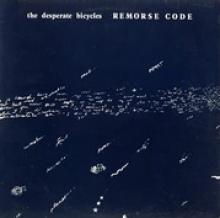Rough Trade might count as one of the most important labels of the last forty years as it released or distributed work from bands as diverse as the Specials and Pere Ubu, Scritti Politti and Augustus Pablo. As a part of this unwieldy aural compendium, the Bicycles showed up with a disc that not only represented a step through punk on towards what would eventually become the eighties’ underground, but also a demanding charge for other bands to record and release their own music.
The Bicycles first few albums included not just encouragement to record independently, but also prices and contact information for business that bands would need to deal with in order to work free of the proper label system.
Beyond the political and social implications that polemics like these represent were the songs the Bicycles were able to record. The music lands somewhere between the Television Personalities and early Scritti Politti, if not a bit toned down.
The band’s earliest singles, more than just a few were issued before the ensemble’s full length, all trucked in the shortest blasts of rock stuff possible. If the tracks were too much shorter, there well may have been an outcry on the part of the consumer – “Handlebars” clocks in at under a minute.
For Remorse Code, released in 1979, the Bicycles cleaned up its sound, but only moderately. Present from the beginning of the disc, though, were vocal melodies absent from earlier work. “I am Nine” should rightly have been a hit. But by 1979, anything remotely associated with punk, aurally or politically, was going to be discounted to a certain extent. Even tossing in the harmonica didn’t work to the band’s advantage.
Whatever the case, “Acting” and some other tracks a bit on aped as much attitude as the Clash and even sported a hint of psychedelia to it all. For whatever reason, though, after releasing so much vital music over the span of just a few years, the Bicycles called it day. Not making it too deep into the eighties wasn’t a crime, but probably accounts for the group’s lack of renown today.
